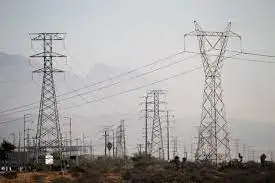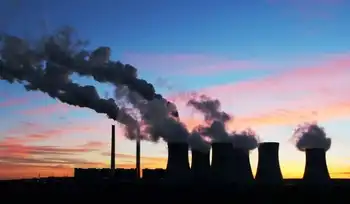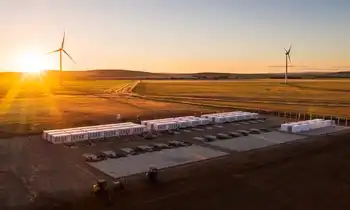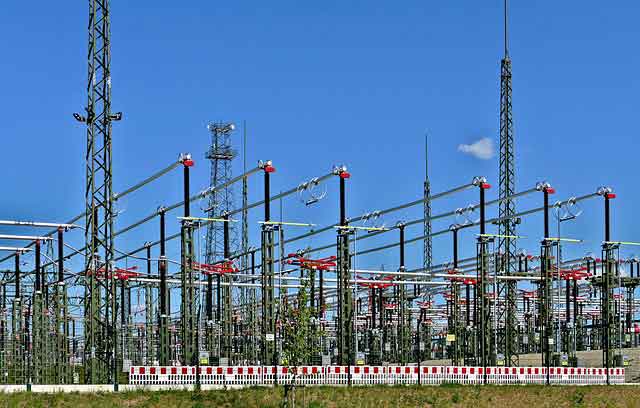U.S. Department of Energy Announces $110M for Carbon Capture, Utilization, and Storage
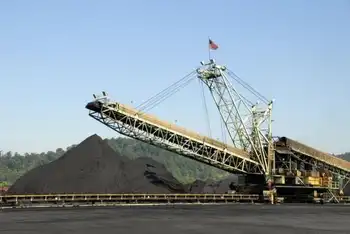
NFPA 70b Training - Electrical Maintenance
Our customized live online or in‑person group training can be delivered to your staff at your location.

- Live Online
- 12 hours Instructor-led
- Group Training Available
DOE CCUS Funding advances carbon capture, utilization, and storage with FEED studies, regional deployment, and CarbonSAFE site characterization, leveraging 45Q tax credits to scale commercial CO2 reduction across fossil energy sectors.
Key Points
DOE CCUS Funding are federal FOAs for commercial carbon capture, storage, and utilization via FEED and CarbonSAFE.
✅ $110M across FEED, Regional, and CarbonSAFE FOAs
✅ Supports Class VI permits, NEPA, and site characterization
✅ Enables 45Q credits and enhanced oil recovery utilization
The U.S. Department of Energy’s (DOE’s) Office of Fossil Energy (FE) has announced approximately $110 million in federal funding for cost-shared research and development (R&D) projects under three funding opportunity announcements (FOAs), alongside broader carbon-free electricity investments across the power sector.
Approximately $75M is for awards selected under two FOAs announced earlier this fiscal year; $35M is for a new FOA.
These FOAs further the Administration’s commitment to strengthening coal while protecting the environment. Carbon capture, utilization, and storage (CCUS) is increasingly becoming widely accepted as a viable option for fossil-based energy sources—such as coal- or gas-fired power plants under new EPA power plant rules and other industrial sources—to lower their carbon dioxide (CO2) emissions.
DOE’s program has successfully deployed various large-scale CCUS pilot and demonstration projects, and it is imperative to build upon these learnings to test, mature, and prove CCUS technologies at the commercial scale. A recent study by Science of the Total Environment found that DOE is the most productive organization in the world in the carbon capture and storage field.
“This Administration is committed to providing cost-effective technologies to advance CCUS around the world,” said Secretary Perry. “CCUS technologies are vital to ensuring the United States can continue to safely use our vast fossil energy resources, and we are proud to be a global leader in this field.”
“CCUS technologies have transformative potential,” said Assistant Secretary for Fossil Energy Steven Winberg. “Not only will these technologies allow us to utilize our fossil fuel resources in an environmentally friendly manner, but the captured CO2 can also be utilized in enhanced oil recovery and emerging CO2-to-electricity concepts, which would help us maximize our energy production.”
Under the first FOA award, Front-End Engineering Design (FEED) Studies for Carbon Capture Systems on Coal and Natural Gas Power Plants, DOE has selected nine projects to receive $55.4 million in federal funding for cost-shared R&D. The selected projects will support FEED studies for commercial-scale carbon capture systems. Find project descriptions HERE.
Under the second FOA award, Regional Initiative to Accelerate CCUS Deployment, DOE selected four projects to receive up to $20 million in federal funding for cost-shared R&D. The projects also advance existing research and development by addressing key technical challenges; facilitating data collection, sharing, and analysis; evaluating regional infrastructure, including CO2 storage hubs and pipelines; and promoting regional technology transfer. Additionally, this new regional initiative includes newly proposed regions or advanced efforts undertaken by the previous Regional Carbon Sequestration Partnerships (RCSP) Initiative. Find project descriptions HERE.
Elsewhere in North America, provincial efforts such as Quebec's and industry partners like Cascades are investing in energy efficiency projects to complement emissions-reduction goals.
Under the new FOA, Carbon Storage Assurance Facility Enterprise (CarbonSAFE): Site Characterization and CO2 Capture Assessment, DOE is announcing up to $35 million in federal funding for cost-shared R&D projects that will accelerate wide-scale deployment of CCUS through assessing and verifying safe and cost-effective anthropogenic CO2 commercial-scale storage sites, and carbon capture and/or purification technologies. These types of projects have the potential to take advantage of the 45Q tax credit, bolstered by historic U.S. climate legislation, which provides a tax credit for each ton of CO2 sequestered or utilized. The credit was recently increased to $35/metric ton for enhanced oil recovery and $50/metric ton for geologic storage.
Projects selected under this new FOA shall perform the following key activities: complete a detailed site characterization of a commercial-scale CO2 storage site (50 million metric tons of captured CO2 within a 30 year period); apply and obtain an underground injection control class VI permit to construct an injection well; complete a CO2capture assessment; and perform all work required to obtain a National Environmental Policy Act determination for the site.





